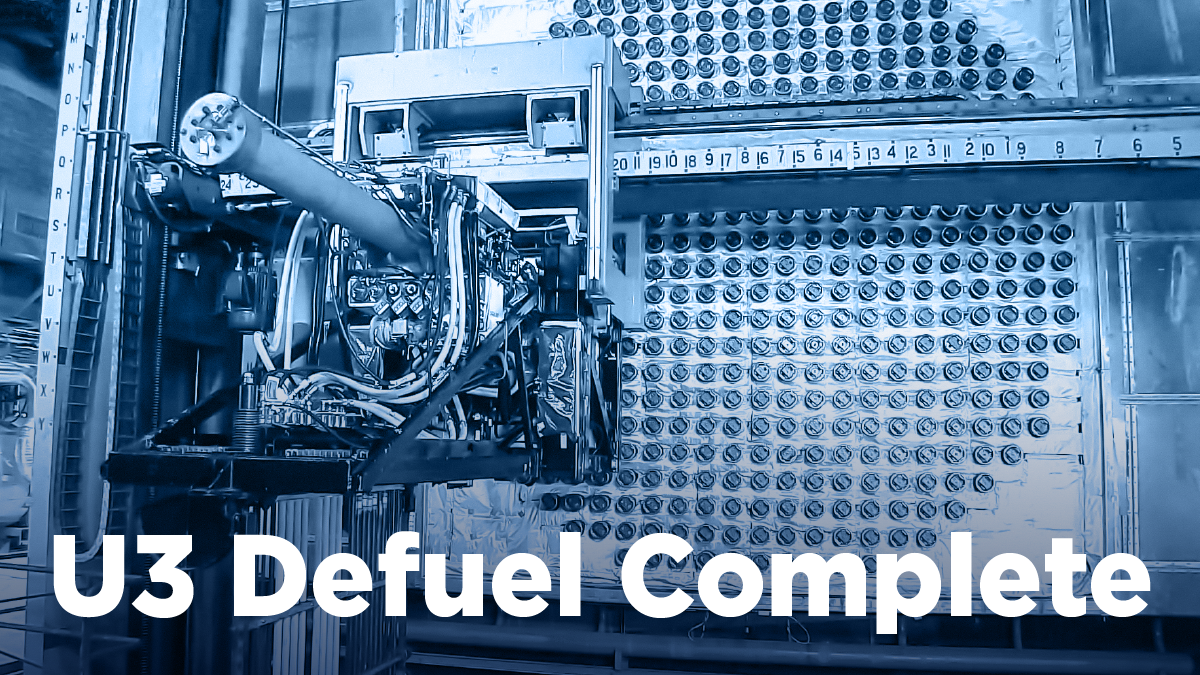
Crews at Bruce Power have completed the defuelling of unit 3, 18 days ahead of schedule. The unit was shut down in early March in order to begin its Major Component Replacement (MCR) outage. The refurbished unit is scheduled to come back online in 2026. During the 27-day defuelling programme, 5,748 fuel bundles were removed from the reactor core.
The MCR project began in January 2020. The eight pressurised heavy-water Candu reactor units at the Bruce site (Bruce A – units 1-4, and Bruce B – units 4-8) began commercial operation between 1977 and 1987. Bruce Power’s CAD13bn ($10bn) Life Extension Programme, which includes Asset Management and MCR, began in 2016. MCR, which began with unit 6 and also includes units 3-8, will extend the life of the site until 2064. Units 1&2 have already been refurbished and were returned to service in 2012.
Defuelling takes place in two phases. Workers begin with the “flow defuel” method for the first stage and then transition into using BRIMS, or the Bruce Reactor Inspection Maintenance System. This system enables shutdown of the heat transport pumps which are expensive to run. Decay heat is too great to use BRIMS directly after shut down, which is why the flow defuel method is employed to start.
Defuelling of unit 3 was completed 31 days faster than the same programme on the unit 6 MCR. Process improvements and lessons learned from the unit 6 MCR enabled innovations that enhanced performance efficiencies, Bruce Power said.
“This remarkable achievement has been realised primarily due to the extraordinary planning and innovation put into place in unit 3,” said Bruce Power President & CEO Mike Rencheck. “Learning lessons during unit 6’s MCR, leveraging the ideas and experiences of staff and investing in innovative tooling has allowed us to find efficiencies and this builds on the successful momentum of our Life-Extension Programme overall.”
Bruce Power is now preparing for bulkhead installation and the Primary Heat Transport system ‘drain and dry’ as the next steps in the project prior to starting construction activity, which begins with major component disassembly.